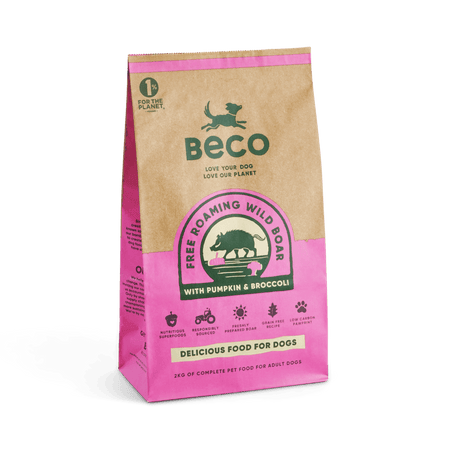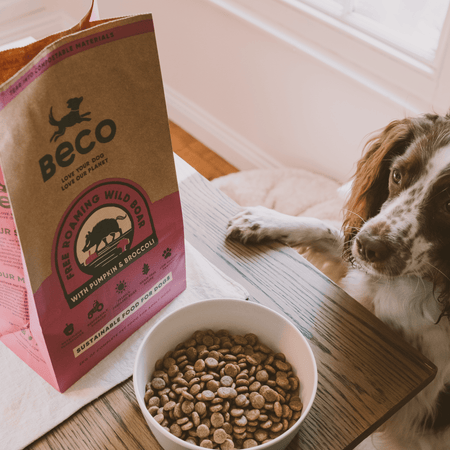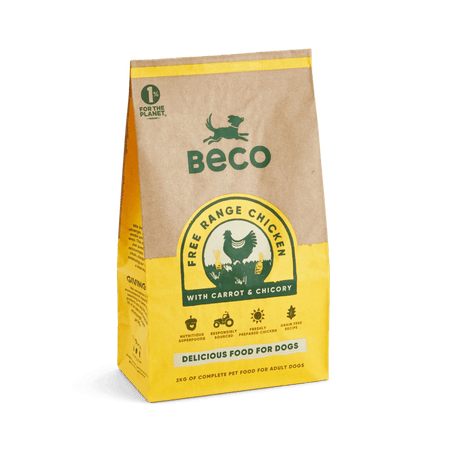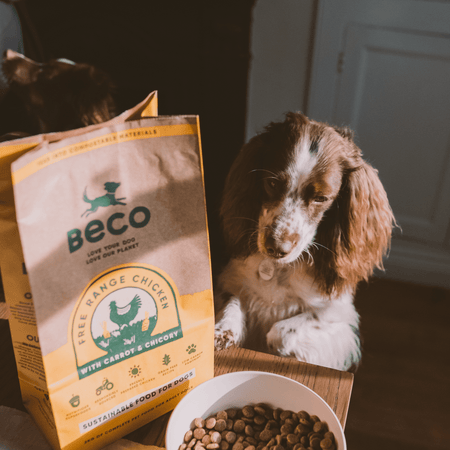Yes! Dogs can absolutely eat broccoli. In fact, this brassica vegetable can be consumed by dogs either cooked or raw. What’s more, broccoli covers various health benefits for dogs, including increased levels of calcium, potassium and vitamin K within the body.
At the same time, though, it’s important not to feed your dog too much broccoli, as this can lead to gastrointestinal irritation - in other words, a sick tum! First, then, let’s look at more detail about how well suited a vegetable broccoli is to dogs and their diet.
What does broccoli contain?
This versatile cruciferous vegetable (which seems to either be loved or loathed by us humans, and no in between) contains healthy amounts of:
Dietary fibre
Vitamins C and K
Vitamin B9 (also known as folate)
Calcium
Manganese (used by the body in various physiological processes, such as the release of energy and the metabolising of proteins)
Potassium
Iron
Is it good for dogs?
Like most vegetables, on a broad level (just as for humans) broccoli - with its natural, organic goodness - is good for dogs. On a more specific level, however, it’s probably preferable to feed your dog broccoli either as a treat or as an occasional part of their diet, as opposed to necessarily a mealtime mainstay. Why is this? Well, although broccoli contains many nutrients and vitamins, it also contains natural chemicals called isothiocyanates.
These isothiocyanates can cause gastric irritation (of varying degrees) and so broccoli should form no more than 10% of a dog’s daily caloric intake, if you’re getting to add it to their diet. Luckily, if you are looking to include it in your dog's diet we can save you from measuring it all out, as this wonderful vegetable is included in our grain free dog food.
The health benefits of the vegetable in moderation aren’t to be overlooked. Improved calcium and potassium can help with bone density and strength, whilst vitamin K is crucial in helping blood to coagulate and clot when necessary (something both carrots and kale are also very high in).
Can puppies eat broccoli?
Generally speaking, the same logic applies when it comes to puppies as it does their adult counterparts; however, it’s worth noting that puppies are generally more susceptible to stomach problems, as they grow and first get used to foods, so when it comes to these younger dogs, perhaps steer clear of broccoli, at least until they’re older, and have a more resilient stomach.
Can they eat it every day?
Theoretically, yes, although we’d again remind you of what was said above - that broccoli should only form a relatively minor part of your dog’s diet, especially if you plan on incorporating it into your dog’s daily diet. If you are going to feed your broccoli everyday (and, in fact, this applies to whenever you feed your dog this vegetable) then make sure to cook it plain (the cleanest, easiest way is to steam it) and without any additional seasoning, oils or additives. As so often with foods fed to dogs, it’s not so much the food itself as what it’s cooked in that can be unhealthy - just like with us humans!
Can dogs eat the stalks?
Fortunately, when it comes to making preparation nice and easy - dogs can eat both broccoli stalks and the florets, so there’s no need to separate the two. In terms of the nutritional aspects, both the florets and stalks are similar, so that 10% of daily intake rule applies whether you’re talking about the tree trunk or the canopy top, so to speak.
Does broccoli give dogs diarrhoea?
The isothiocyanates we mentioned earlier predominantly affect a dog’s gastrointestinal systems. On the mild end, this can cause flatulence, then more seriously they can lead to diarrhoea and nausea, and in drastically too much quantities, can lead to even more serious stomach issues which require urgent veterinarian intervention. So, yes, broccoli can give dogs diarrhoea, but in smaller quantities? Hopefully it won’t.
Does broccoli stop dogs eating poop?
Dogs eat their poop for all kinds of reasons; this behaviour (called coprophagia) might be disgusting to us humans, but it’s remarkably common amongst our canine companions. In fact, a previous study found that 24% of dogs - almost one quarter - have been observed eating their own faecal matter at one point or another.
There’s a train of thought that suggests adding certain foods to a dog’s diet (broccoli being one) can make the resultant faeces ‘less appetising’ to dogs, and therefore stops the coprophagic behaviour. The success of this is thought to vary between individual dogs, however. If you’re unsure, why not give it a try and see if it stops your dog from indulging in its particular habit…
Should any dogs not be fed broccoli?
Certain dog breeds are naturally more prone to gas and flatulence, so broccoli might not be the best addition to their diet! These include:
Boxers
Pugs
Golden Retrievers

The easiest way to introduce broccoli into your dog’s diet is not (as you might’ve imagined) to cook it separately and just add it to whatever you’re currently feeding your dog, but to pick a dog food which features the vegetable as one of its primary ingredients. Our grain free wild boar, pumpkin and broccoli dog food, for instance, has been specially formulated with exactly the right quantities of broccoli, so that your dog gets all the vegetable’s benefits without any of the potentially unsavoury gastrointestinal side effects.
If you’re ever unsure about whether or not you can feed your own dog a food type, then the safest thing you can do is get in touch with your veterinarian, as they’ll have direct access to your dog’s medical records, and will be best-situated to offer targeted and specific advice regarding your dog.
Failing that, however, it’s absolutely fine to take a look online. Make sure whatever advice you find, however, that you then cross-verify its legitimacy on several sources or websites, so that you know what you’re utilising is widely-accepted advice, and not just one person’s fringe alternative opinion.













